Ineos arrival casts environmental cloud over Team Sky
Former Ocean Rescue campaigners welcome controversial large-scale plastics producer
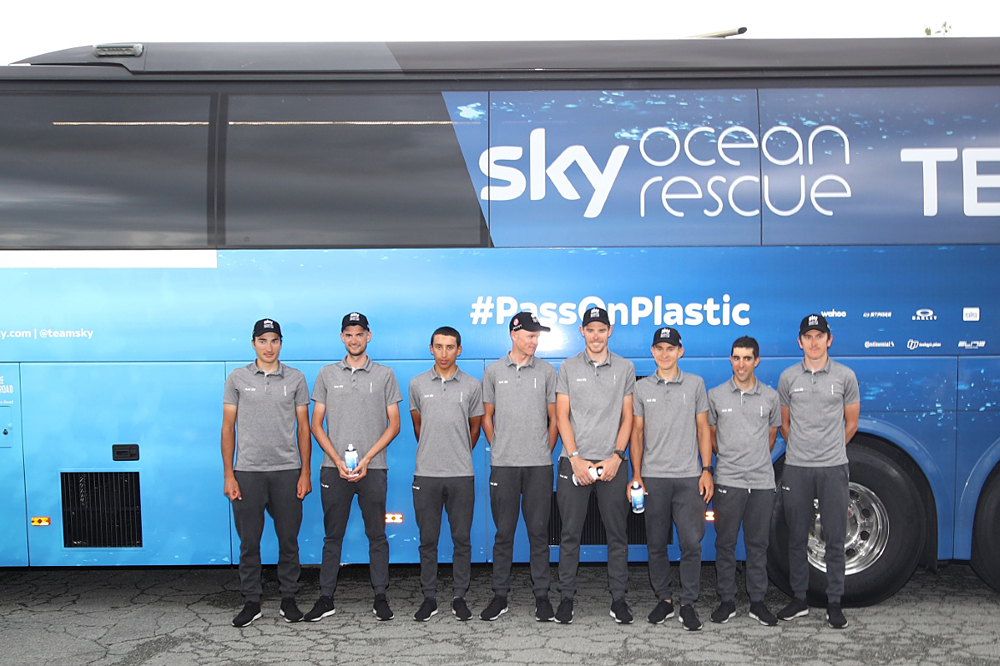
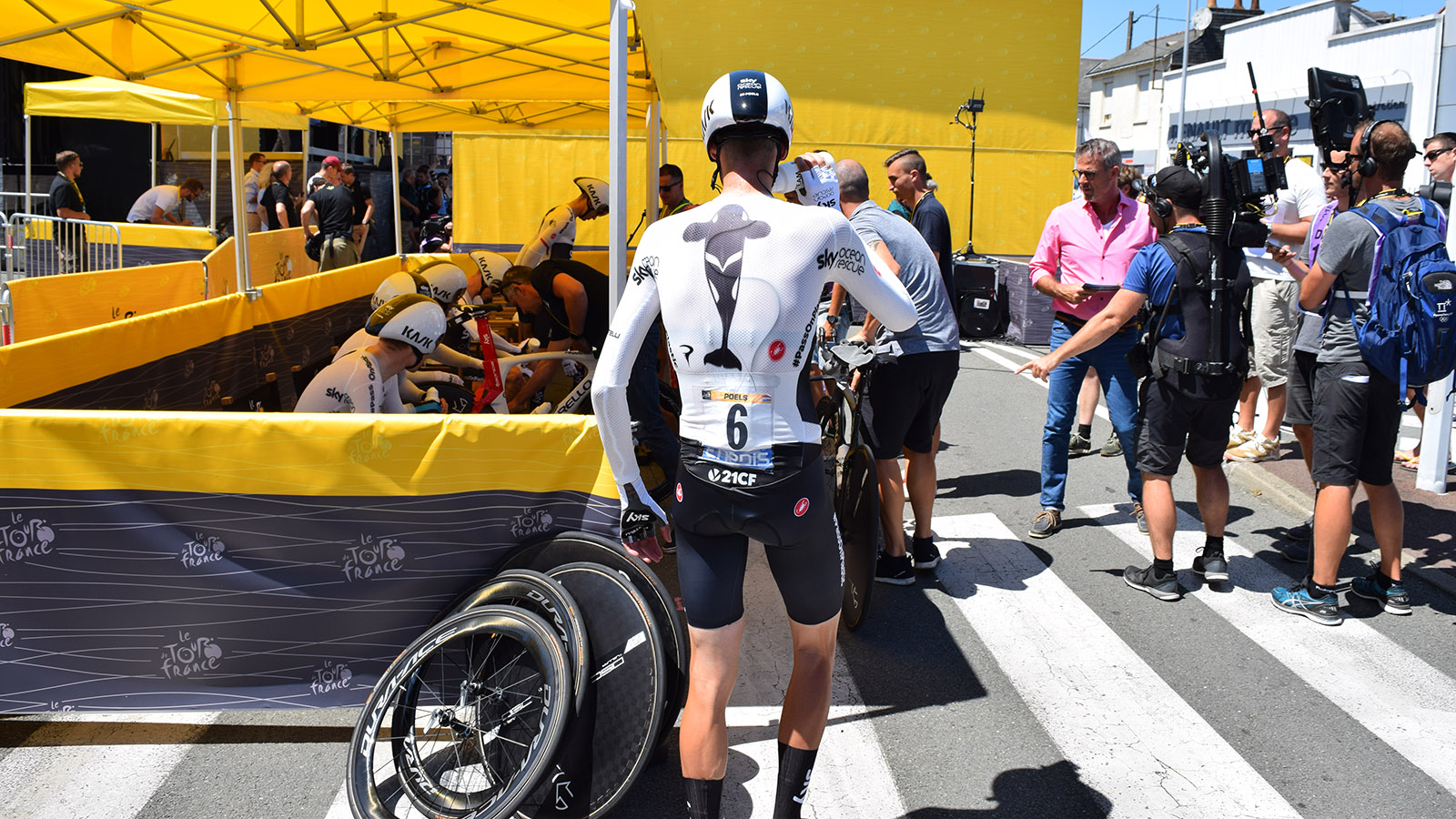
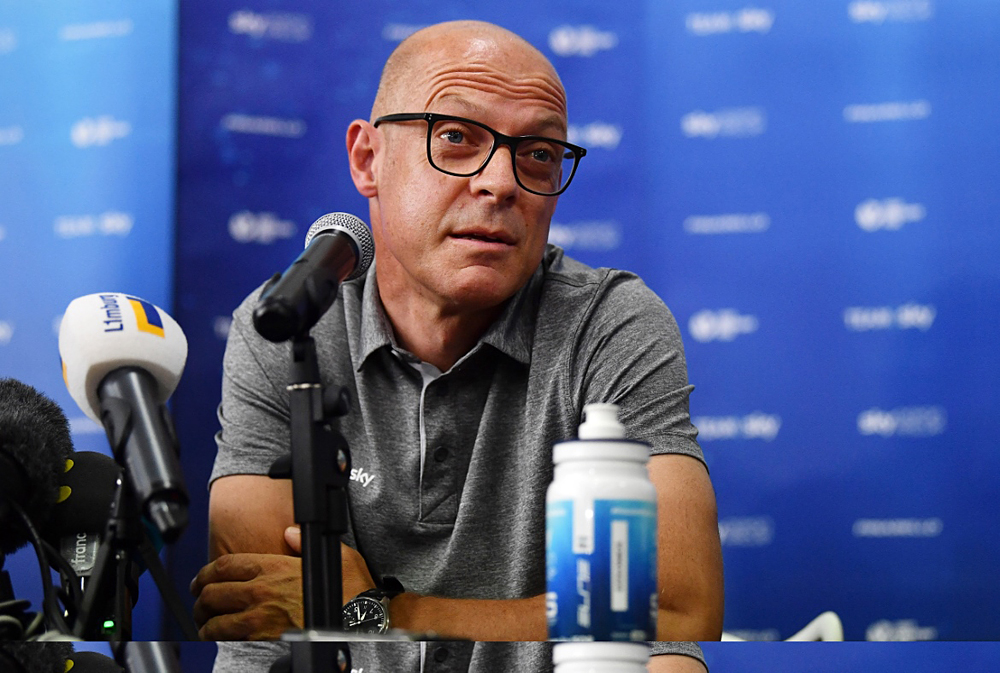
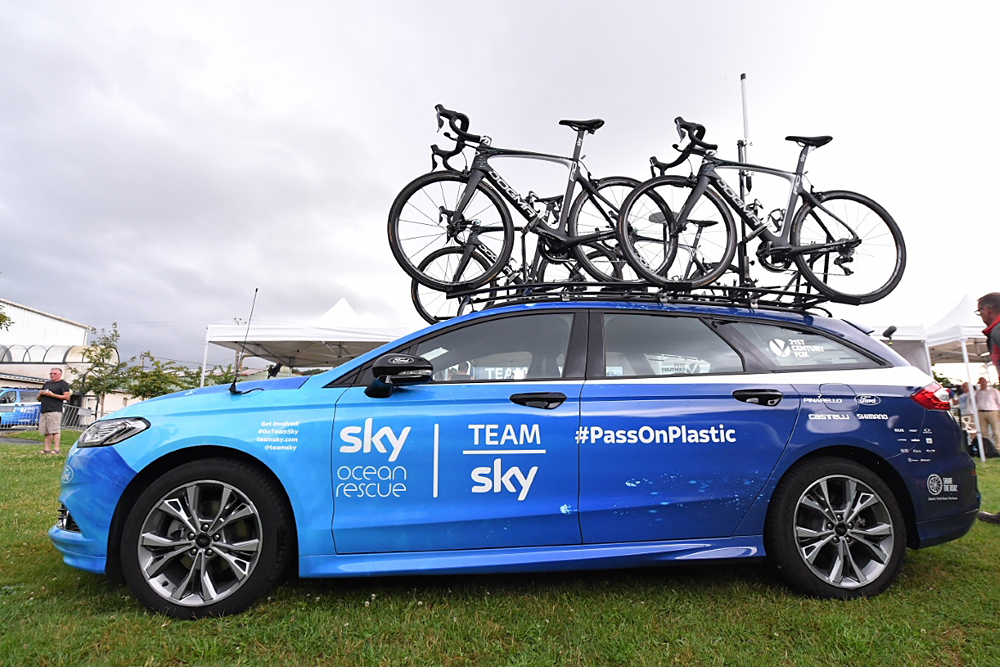
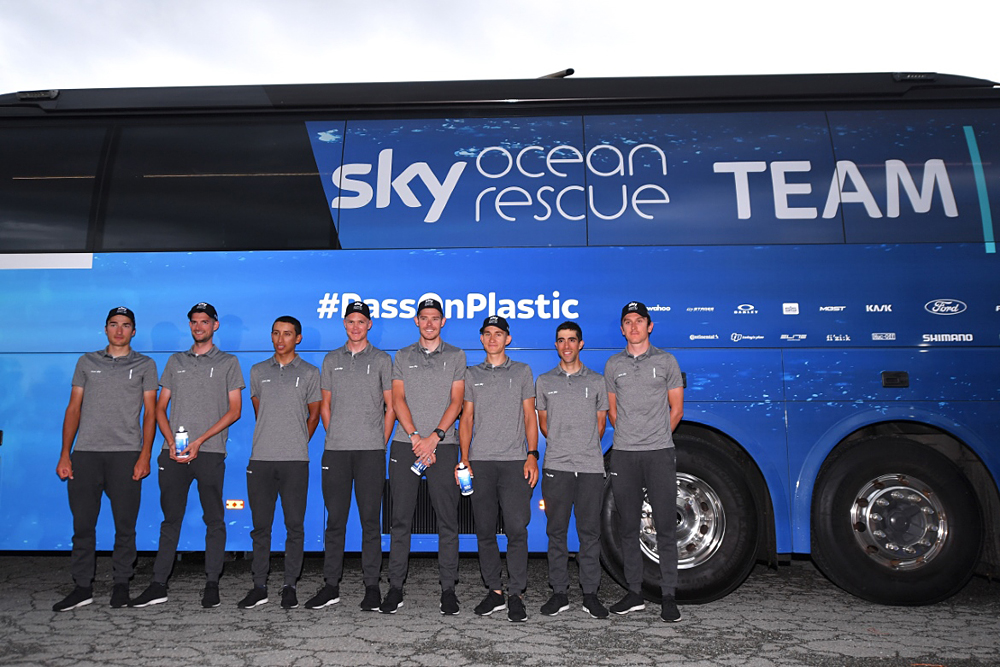
In the new Alan Partridge series, Steve Coogan's comedy creation takes aim at the use of public relations campaigns by controversial companies, neatly lampooning both the perpetrators and consumers of this 'reputation laundering' in one fell swoop. "Good for them," he says when he learns that oil company Shell had sponsored the Wildlife Photographer of the Year competition. "They get a lot of stick for the Exxon Valdez oil spill, but then they sponsor a prize for animal photos and you think, maybe it's time to take a fresh look at Shell."
We were invited to take a fresh look at Team Sky eight months ago, when they turned up to the Tour de France with orca whales on the backs of their jerseys in support of Sky's Ocean Rescue, a campaign aiming to help tackle the global plastic pollution crisis. It was impossible to question the cause, but not the intentions. With the team mired in the controversy surrounding Chris Froome's salbutamol case, the cynical eye saw it as a page ripped directly out of the Alastair Campbell playbook.
Eight months on, that cynicism would seem well placed, as Dave Brailsford unveils Ineos, one of the world's biggest producers of non-degradable plastics, as the new sponsor of his team. Where that leaves the team's commitment to removing all single-use plastics from their business operations by 2020 is anyone's guess. They have not yet responded to a request for comment.
Ineos, headed by Britain's richest man, Jim Ratcliffe, has faced fierce criticism from environmental campaigners for a number of years now, many of whom reacted with dismay to Tuesday's announcement.
Ineos is a petrochemical company with a wide range of businesses. In plastics, it claims to be Europe's third largest producer of polyethylene and polypropylene, the two most common plastic compounds, which are widely used in packaging and construction. Plastic is also at the heart of perhaps the most controversial aspect of Ineos: its quest to see fracking rolled out in the UK. Fracking is the process by which water, sand, and chemicals are pumped underground to trigger disruptions in rock formations that release shale gas, which is an energy source and also feedstock for ethylene, the raw material for the aforementioned plastics.
Ineos, which currently imports shale gas from the USA to Europe in specifically-developed cryogenic shipping vessels, claim fracking would revitalise Britain's languishing manufacturing sector. Green groups, however, warn of dangers to the environment - through climate change, water and air pollution, and even earthquakes - and also to public health. There have been numerous protests, to which Ineos has responded by taking out an injunction that could see anti-fracking campaigners jailed if they interfere with operations.
Reacting to news of the cycling sponsorship, Tony Bosworth, fossil free campaigner at Friends of the Earth, accused Ineos of 'greenwashing' - the environmental equivalent of reputation laundering.
Get The Leadout Newsletter
The latest race content, interviews, features, reviews and expert buying guides, direct to your inbox!
"Taking over Team Sky is the latest blatant attempt at greenwashing by Ineos," Bosworth said. "Cycling is one the UK's most successful and popular sports, but do the likes of Geraint Thomas and Chris Froome really want to be associated with a planet-wrecking company like Ineos?"
Ineos insists it shows a "commitment to the principles of responsible care" and that "sustainability is fundamental to how we do business".
This is not Ineos' first foray into sport. Last year, the company was announced as title sponsor of Ben Ainslie's sailing team for the 2021 America's Cup. Following the news, several environmental groups, including Greenpeace and Friends of the Earth, signed an open letter criticising World Sailing for allowing an "entrant sponsored by a company known for its environmentally destructive practices and ongoing assault on the democratic right to protest". Citing World Sailing's Code of Ethics, the letter adds: "Your decision to permit the application of any team sponsored by Ineos undermines World Sailing's commitments to respecting and safeguarding our environment."
The criticism is widespread. A 2016 article by the Foundation for the Economics of Sustainability refers to Ineos as "an ecocidal empire built on trash". Reacting to the Team Sky news, former UK Green Party leader Natalie Bennett tweeted: "Extreme mismatch: A low-carbon, energy-efficient method of transport in cycling, & proponent of fracking, plastic pollution and climate inaction in Ineos. Although given both's reputational issues, maybe inevitable." Friends of the Earth CEO Craig Bennett said: "This is such a bad decision. They really haven't thought this through, have they?!"
It is easy to become desensitised to what are perceived as 'ugly' sponsors in professional cycling. We have gambling companies and nation states with alarming human rights records. Ineos aren't the first to come with environmental question marks, with mining firm Orica a former sponsor of Mitchelton-Scott and oil giant Total a future sponsor of Direct Energie. Other sports have shown that moral concerns will rarely stop a fan from tuning in, but it goes further in cycling: the sport is so unstable, economically, that any money coming in is seen as a blessing, no matter its source.
The UCI does not have a 'fit and proper persons test', as in football, but does take ethical criteria into account when issuing teams with racing licences. However, this is limited to legal and contractual obligations and doesn't cover anything beyond respect for the vague term of 'the image of cycling'. Perhaps that's why complaints from human rights groups over the Bahrain-Merida team - allegations that were strongly denied by the Kingdom of Bahrain - fell on deaf ears.
Despite promoting an environmentally friendly mode of transport, professional cycling, with tens of vehicles in every race and riders flown all over the world, cannot reasonably claim to be a 'green' sport. Complaints that companies with poor environmental records bring the sport into disrepute, then, are slightly misplaced. Similarly, complaints against Ineos' plastic production are complicated by the proliferation of their products in our daily lives. However, for many, the difference in this case will be the fact that, less than a year ago, Team Sky took such a strong ethical stand against a problem widely considered to be perpetuated by the company they now welcome as their new owner.
"It is a clear example of how much money is power in cycling," former pro Michael Rasmussen wrote in his latest column for Danish newspaper Ekstra Bladet. "When it comes down to it, and when the bills have to be paid, people don't care where the money comes from."
Patrick is a freelance sports writer and editor. He’s an NCTJ-accredited journalist with a bachelor’s degree in modern languages (French and Spanish). Patrick worked full-time at Cyclingnews for eight years between 2015 and 2023, latterly as Deputy Editor.
